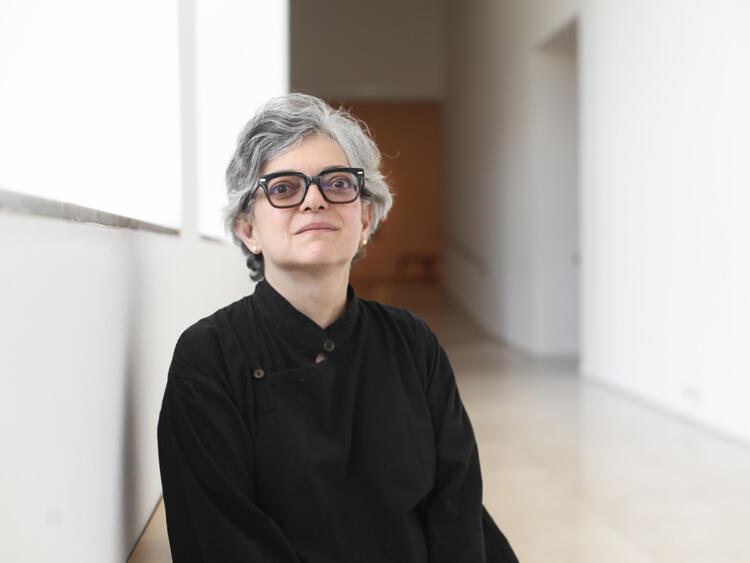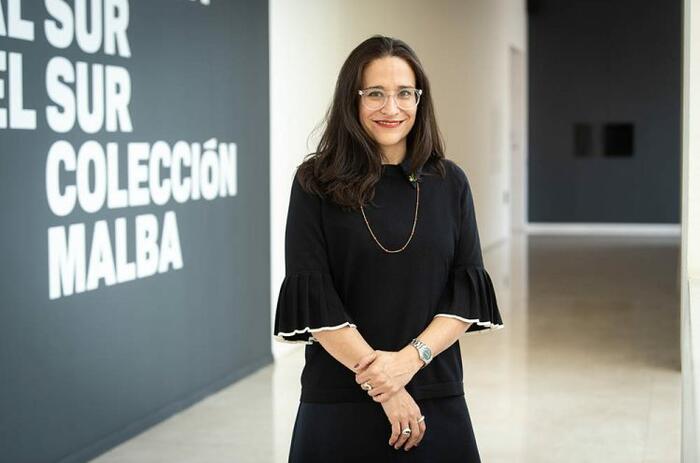GABRIELA RANGEL CLOSES HER CYCLE AS ARTISTIC DIRECTOR AT MALBA FROM JUNE 2021
Two years after the announcement of her appointment, the Museum of Latin American Art of Buenos Aires reports that Gabriela Rangel will leave her position as Artistic Director of the museum as of June, in the framework of an unprecedented international crisis marked by the pandemic.

In the words of Gabriela Rangel: “I assumed the position of Artistic Director of Malba in September 2019, a task that I have been exercising with dedication and tenacity, much of it during the quarantine declared in the country because of COVID 19. I make this decision at singular and unpredictable time. I have learned a lot from this experience, which has opened me to other professional paths. I thank the Malba team, my colleagues and collaborators from the international artistic community, the presidency and the board of directors, the Acquisitions Committee and the Association of Friends, and the artistic and intellectual community of Buenos Aires for their warm hospitality during my stay in this city. I leave with immense gratitude to Argentina for this opportunity”, she highlights.
For Teresa Bulgheroni, President of the Malba Foundation, "It has been a great pleasure to work with Gabriela Rangel, a committed professional who shared her knowledge and international experience, bringing a new look to our scene."
Starting in June, Rangel will continue to work with the museum team to finalize ongoing collaborations. Simultaneously, Malba will begin the search for a new Director whose incorporation will be announced in due course.
Completed projects
During her tenure, Gabriela Rangel took up the challenge of programming the face-to-face museum and the virtual museum, which was consolidated through the development of new initiatives launched on the platform in September 2020: “History as rumor” and “Talk to her” and a series of conferences and virtual talks with prominent national and international references. Likewise, Rangel herself was part of the founding nucleus of the Argentine Network of Museums and Art Spaces (RAME).
The bilingual archive “La historia como rumor” brings together a series of digital exhibits that document and update the reading of a set of contemporary performances by Latin American and Latino artists between the end of the Cold War and the beginning of the internet, as well as creating a collaborative network with invited curators, experts and international institutions. The "Talk to Her" project carried out together with an interdisciplinary team, puts works from the museum's collection in dialogue with the gaze of different Argentine and Latin American artists.
-
Dormir es una obra maestra, Lima, 1978. Cortesía Centro Studi Jorge Eielson, Florencia. - Jorge Eielson - El Cuerpo de Giulia-no - Venecia, 1972
-
COCO FUSCO Y GUILLERMO GÓMEZ-PEÑA - DOS AMERINDIOS NO DESCUBIERTOS EN BUENOS AIRES - 1994
-
Tania Bruguera – Destierro - La Habana, 1998. Imagen cortesía de Cristina Vives
-
FRANCIS ALŸS - CUANDO LA FE MUEVE MONTAÑAS - LIMA, 2002
In relation to heritage, Rangel together with museum curators prepared a new narrative of the Malba Collection, “Latin America to the South of the South”, conceived from a regional perspective located in Buenos Aires and as a palimpsest, elaborated on other shows of the collection. During this period, Malba received donations of works by Donna Conlon, Milagros de la Torre and Karin Idelson and new works were acquired for the collection by artists such as Maris Bustamante, Marcia Schvartz, Martin Chambi, Sharoanawe, Graciela Sacco, Regina José Galindo, Sofia Dying, among others.
-
Tarsila do Amaral - Abaporu, 1928
-
Rómulo Macció - Aquel hermano loco de Theo, 1963
-
Alfredo Hlito - Efigie en equilibrio relativo, 1991
-
Emilio Pettoruti - Vallombrosa, 1916
-
Emilio Pettoruti - La canción del pueblo, 1927
-
Joaquín Torres-García - Composition symétrique universelle en blanc et noir, 1931
She also worked on the Paralelo 1//3 program, with the exhibition "Out of the Series" by the artists Alejandra Seeber and Leda Catunda, which includes an exhibition in two rooms putting them to work in dialogue, redefining the museum spaces and proposing the participation of the public in the spatial construction of the museological discourse.
On the Malba esplanade, Rangel installed “Leverage”, a participatory work by Mexican artist Pedro Reyes that proposes a model of social sculpture.
Finally, “Terapia” –exhibition that Rangel elaborated together with Verónica Rossi and Santiago Villanueva– specifies a research project lasting almost two years where the conditions that made psychoanalysis an appropriate discipline and discourse are questioned and reworked in Argentina throughout the last century.



